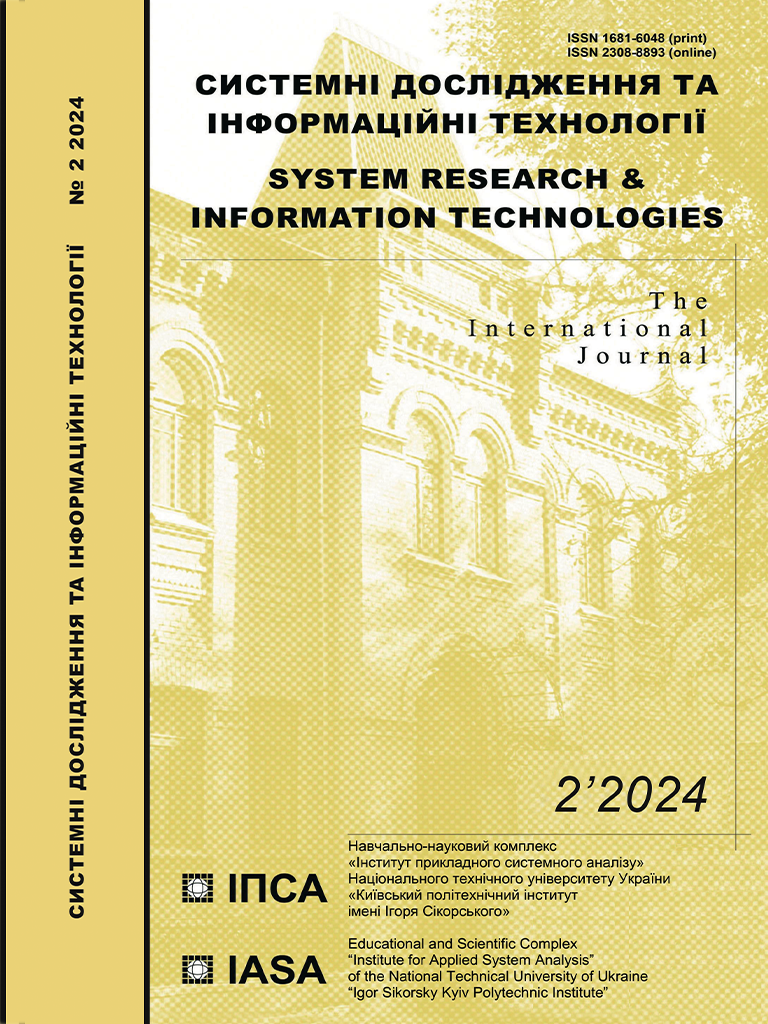Study of the factor influence on the uniformity of coffee grain grinding by methods of statistical analysis
DOI:
https://doi.org/10.20535/SRIT.2308-8893.2024.2.10Keywords:
dispersion analysis, homogeneity of grinding, factor influence, model, indicator of control, coffee beanAbstract
In order to assess the impact of each of the factors that affect the quality and uniformity of grinding coffee beans and to compare the impact of these factors, it is worth establishing a quantitative indicator of this impact. To solve this problem, dispersion analysis was used as a method of organizing sample data according to possible sources of dispersion. The chosen method made it possible to decompose the total dispersion into components caused by the influence of factor levels. Grinding time, geometric dimensions of the grain, moisture content of the grain, speed of rotation of the motor shaft were selected as factors influencing the homogeneity of grinding. The justification and assessment of the reliability of statistical conclusions about the informational significance of indicators affecting the homogeneity of coffee grinding was carried out to ensure the highest possible probability of the obtained result.
References
V.P. Misyats, M.M. Rubanka, and S.A. Demishonkova, “System of adaptive control of the drive of automatic coffee machines,” Bulletin of the Khmelnytskyi National University, no. 1, pp. 151–159, 2021 (293). doi: 10.31891/2307-5732-2021-293-1-151-159.
E. Uman et al., “The effect of bean origin and temperature on grinding roasted coffee,” Sci. Rep., vol. 6, 24483, 2016. doi: https://doi.org/10.1038/srep24483.
Nancy Cordoba, Laura Pataquiva, Coralia Osorio, Fabian Leonardo Moreno Moreno, and Ruth Yolanda Ruiz, “Effect of grinding, extraction time and type of coffee on the physicochemical and flavor characteristics of cold brew coffee,” Sci. Rep., 9, 8440, 2019. doi: https://doi.org/10.1038/s41598-019-44886-w.
Jonathan D. Walston, Daniel L. Short, and M. Affan Badar, “An Experimental Design on Coffee Extraction Factors Impacting the Measurable Percent of Total Dissolved Solids in Solution,” Asia-Pacific Journal of Management Research and Innovation, pp. 1–11, 2023. doi: 10.1177/2319510X221136690.
Anderson G. Costa, Eudócio R.O. da Silva, Murilo M. de Barros, and Jonatthan A. Fagundes, “Estimation of percentage of impurities in coffee using a computer vision system,” Brazilian Journal of Agricultural and Environmental Engineering, vol. 26, no. 2, pp. 142–148, 2022. doi: http://dx.doi.org/10.1590/1807-1929/agriambi.v26n2p142-148.
G. Angeloni et al., “Test of an innovative method to prepare coffee powder puck, improving espresso extraction reliability,” Eur. Food Res. Technol., 248, pp. 163–170, 2022. doi: https://doi.org/10.1007/s00217-021-03868-x.
Ihor Hryhorenko, Elena Tverytnykova, Svitlana Hryhorenko, and Viktoria Krylova, “Temperature sensor research as a part of a microprocessor system by statistical analysis method,” 2022 IEEE 3rd KhPI Week on Advanced Technology (KhPIWeek), 2022, Kharkiv, Ukraine, pp. 102–107. doi: 10.1109/ХПИНеделя57572.2022.9916478.
I. Hryhorenko, S. Kondrashov, and O. Opryshkin, “Formation of test impacts for the first level of the information and measurement system,” Bulletin of the National Technical University "KhPI". Series: New solutions in modern technology, no. 1 (15), pp. 19–26, 2023. doi: https://doi.org/10.20998/2413-4295.2023.01.03.

